
And now for a musical interlude… from Aden. It appears that after I posted this, it was not possible to see it, but this one works. So here is some Aden Rap.

And now for a musical interlude… from Aden. It appears that after I posted this, it was not possible to see it, but this one works. So here is some Aden Rap.
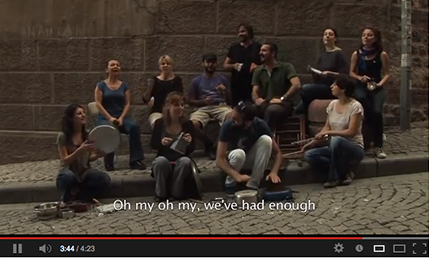
Omid Safi has a fine post (Sounds of Protest: Les Miserables, Gezi Park, and the Power of Music) on his blog at Religious News on the music in the recent protests in Turkey. Check it out for a nostalgic journey through protest songs since Joan Baez. Here is one of the songs he discusses, made at Gezi Park by Kardeş Türküler and called Sounds of Pots and Pans. Check out his commentary for far more. There is also a Turkish website with many tracks of protest music at http://capulcular.bandcamp.com/
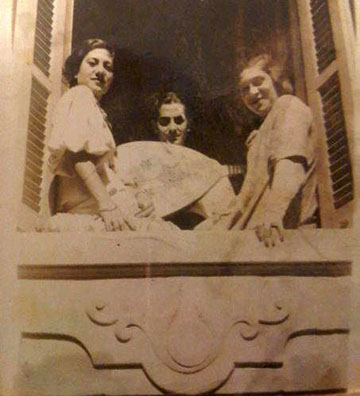
From the left: Becky Memran (formerly Rouvio), with Farid al-Atrash, and her sister Léonie. Alexandria, sometime in the mid-late thirties
The current antagonism on all sides over the Israel/Palestine dilemma belies the fact that relations between individual Arabs and Jews were not always hijacked by politics. One of the most revered singers in the Arab World is Farid al-Atrash, a singer and composer who was born in Syria to a father who fought the French. The family migrated when he was young to Egypt, where they were granted citizenship. A recent article by Tamar Kaplansky includes a picture of the young Farid with her grandmother, who was Jewish, in Alexandria.
For those interested in the music of Farid al-Atrash, Youtube archives a number of clips from his movies and albums here and here and here and on many more sites.

The Al-Ain-based Rock Band “Random Stars”
Where there is youthful fire, there is Smoke on the Water. I remember the first Deep Purple record I bought: Machine Head from 1972. The cover featured a blurry, almost metallic image of the long-haired heads of the band. The song that has since been immortalized describes a fire that destroyed a recording studio in Geneva. Where were these Deep Purple-ites to stay, since Frank Zappa was at the best place in town and the “Rolling truck Stones” were outside the Grand Hotel, which was empty and bare, but obviously full enough to record one of the classics of Rock.
Rock is about as Western as a person can get: sound tracks that serve as neoliberal commercialized crumbs that feed rebellious young people the idea that songs can substitute for real protest. And sex and drugs, of course. It is hard to imagine the band without the groupies, who at least in those days flocked like moths to a flame at every concert. Fundamentalist Christians were appalled, warned by their pastors that Rock songs played backwards held secret Satanic messages. The 1960s auto de fe had already consumed Beatles albums in Alabama. Janis Joplin was dead in 1970; the Lord finally gave her a Mercedes Benz as a hearse. Jimi Hendrix joined her the same year. Jim Morrison walked out of the door of life in 1971. Continue reading Deep Purple for your hijab
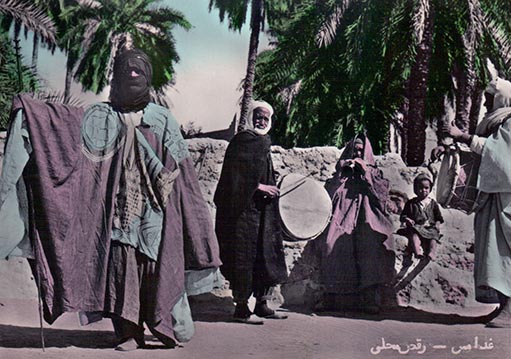 Danza Caratteristica
Danza Caratteristica
Above and below are postcards of scenes in Ghadames, Libya from the 1950s, when it was still a kingdom.
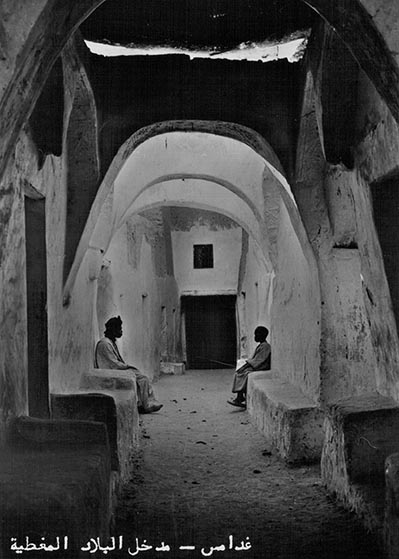
Ingresso alla Citt`a Coperta
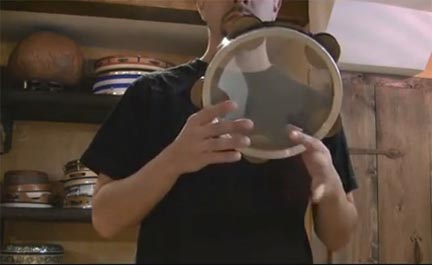
It’s hard to beat a good rhythmic musical performance. Or is it? You can learn the beats of Middle Eastern percussion without being a Mozart or an Abd al-Wahhab. On the riqq, a frame drum, for instance. There is a basic introductory lesson on Youtube by Yousef Sheronick. For performances by the same musician, check out his Youtube channel and website.
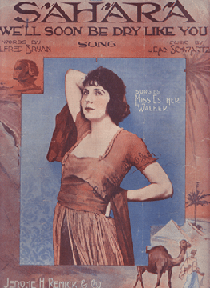
Vaudeville loved Orientalism. By the time Valentino played The Sheik, images of Middle Eastern scenes were well represented on stage and in music. Some of the lyrics from this time period are very clever. My personal favorite is a prohibition song from 1920 called “Sahara, We’ll Soon Be Dry Like You,” sung by the great comic singer Billy Murray. To hear this original 1920 recording in a digital format, click here.
Here are the words. Why not click above and sing along…
Sahara (We’ll Soon Be Dry Like You)
Words by Alfred Bryan, Music by Jean SchwartzVerse 1: King Rameses went to pieces seven thousand years ago,
And pass’d a law that Egypt must go dry.
He took the liquors from the “shickers” all the way to Jericho,
But kept his little toddy on the sly.
The desert of Sahara flow’d with honey so they say,
Till prohibition came along and dried it up one day. Continue reading Tabsir Redux: Sahara, My, My, but its Dry
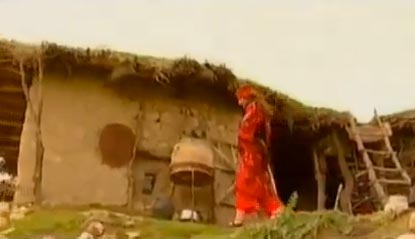
In the midst of all the bad news emanating from the Middle East, here is a youtube video of traditional Kurdish music with pastoral scenes in Kurdistan.